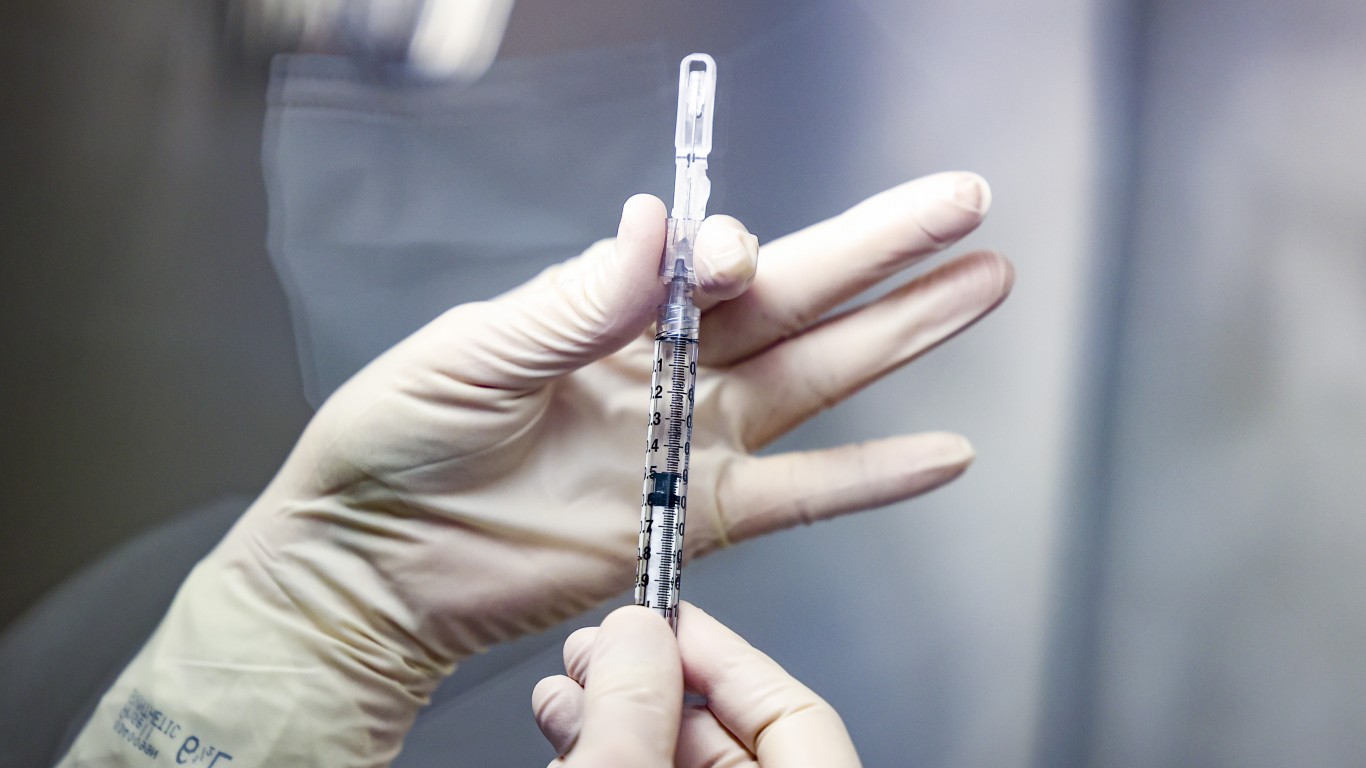Health and Healthcare
COVID-19: The State People Are Least Likely To Get Vaccinated

Published:

Shortly after the outbreak of COVID-19, the Census Bureau launched a vast initiative to measure the effects of the disease on Americans. It is called the Household Pulse Survey. So far, the results have been released in three phases, which began with the first study that was in the field starting April 23, 2020. The data is released by week.
Each weekly report actually covers about two weeks of information gathered by the Census Bureau and other federal agencies. Among the questions asked each week is about the “Likelihood of Receiving a COVID-19 Vaccine.” The question excludes those who have already been vaccinated. Those who have not been are asked if they will “definitely will once available.”
Current data also covers Week 27 and includes the results of questions about income loss, the percentage of Americans who work from home, food scarcity, food insecurity, chances of eviction or foreclosure, difficulty in paying household expenses, whether people have received a COVID-19 vaccine and whether those not vaccinated plan to be.
The work is done in partnership with the Bureau of Labor Statistics (BLS), Bureau of Transportation Statistics, Centers for Disease Control and Prevention (CDC), Department of Housing and Urban Development, National Center for Education Statistics, National Center for Health Statistics, Social Security Administration and USDA Economic Research Service.
Data come from the 50 states, the District of Columbia and America’s largest metro areas.
The state where the fewest people who have not been vaccinated but say they will is North Dakota where a low 23.3% answer in the affirmative. This compares to a national figure of 47.7%. Also on the list where a fairly small number of people plan to be vaccinated are Wyoming at 23.4% and Alaska at 23.6%.
At the other end of the spectrum, in New Hampshire, 68.2% of those questioned said they will be vaccinated. Next is Vermont at 66.4%, followed by Massachusetts at 64.2%. The Census does not give a reason why there is this concentration in the northeast.
The number of people who do not plan to be vaccinated creates a risk for the entire nation. NPR reports: “Now some researchers are increasingly worried that this reticence will be enough to prevent the nation from reaching what’s known as herd immunity, the point at which the coronavirus can no longer spread easily through the population and transmission peters out.”
In other words “vaccine reticence” could be as large a risk to a COVID-19 pandemic recovery as COVID-19 virus variants and the “opening up” of the economy are.
Click here to read States Where The Most People Have Been Vaccinated
Thank you for reading! Have some feedback for us?
Contact the 24/7 Wall St. editorial team.